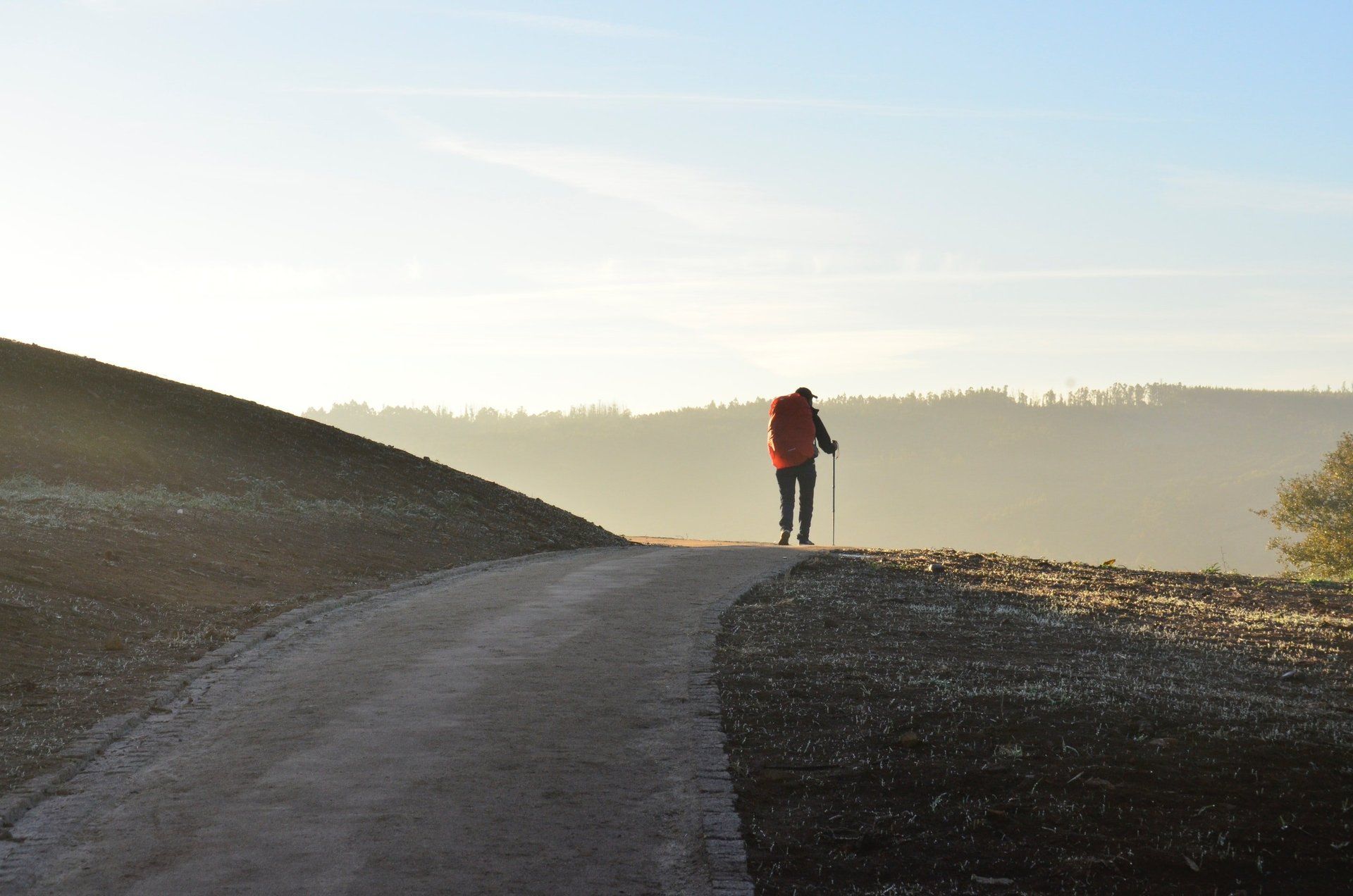Profound Living – Processes
“Centuries of travel lore suggest that when we no longer know where to turn, our real journey has just begun. At that crossroads moment, a voice calls to our pilgrim soul. The time has come to set out for the sacred ground – the mountain, the temple, the ancestral home – that will stir our heart and restore our sense of wonder.” ~Phil Cousineau, The Art of Pilgrimage, p. 9
As we ease into 2019, consider what some of the
processes of living profoundly might be.
Profound living, after all, is – to the extent we can manage it – richly
living in the present. Living in the now. Experiencing fully the taste of that
strawberry, the hug from that grandson, that smell of bacon on a campfire. The
now includes everything. The now means living amply within whatever we
experience now – food, drink, weather, jumping, reading, walking, talking, working,
cleaning.
Processes and practices help us to move more splendidly and completely into now over time. These practices, disciplines, take time – they are actually the work of a lifetime – and yet every moment of that time, over time, is experienced in the now. We have choices about how we wish to spend those moments, and those cumulative moments, over days and years.
There are some processes which, over time, might take us into robust “now’s” and thus a life lived more profoundly.
Consider these five, for starters:
Deepening – Deepening is going into the depths. It is looking below the surface. Testing assumptions that one has carried since childhood or while growing up. Deepening is looking past simple black or white, right or wrong answers, and looking for nuances, similarities, differences. Deepening is elaborating, contextualizing, questioning, testing ideas and beliefs, conceptualizing, building depth of knowledge far more extensive than talking points. Deepening is as powerful in relationships as it is in thinking or believing.
Vasting – Vasting is expanding, going out, going beyond. Vasting is looking to stars in addition to looking at the next step. Vasting is exercising imagination, looking for possibilities, experiencing awe and wonder and mystery in the vastness of the universe but also in the vastness reaches of your children’s eyes.
Centering and De-Centering and Re-Centering – Cosmologists rightly claim there can be no physical center in an infinite universe. Where might that be if the universe extends infinitely? De-centering, that is, recognizing that we aren’t the center of the universe either, is a process of profound living. It is looking for multiple perspectives, looking outside our own self-centered belief systems and experiences and understandings to consider that there is much more than we can ever perceive. It is immersing ourselves in someone else's center. Although there may be no physical center, there is for each of us something central to who we are – the seed of our existence and of life, the essence of who we are as a person, a soul, a living being. And in that sense, centering ourselves, removing that which is false or superficial or petty or less than who we are or can be is also a process which moves us to deeper, more meaningful living.
Pilgrimaging – Pilgrimaging is heading toward something especially meaningful or sacred (see Cousineau’s excellent book, The Art of Pilgrimage , for a good grounding in pilgrimage). “In each of us,” Cousineau says, “dwells a wanderer, a gypsy, a pilgrim. The purpose [of going on pilgrimage] is to call forth that spirit. What matters most on your journey is how deeply you see, how attentively you hear, how richly the encounters are felt in your heart and soul” (p. xxxi). Regularly take time to journey to places of meaning.
Elegancing – Elegancing (see Elegance and Naturally Elegant ) is a process of moving to a place of simple splendor, of being fully abundant and fully useful with nothing wasted. I like House’s definition, “simplicity plus capaciousness”. The process of elegancing is continually finding that place where one has just what one needs for a simple yet capacious – a full and a profound – life.
Here are some other processes which might lead to more profound living .
- Risking
- Collaborating/Building Communitying
- Challenging – Experimenting, Testing
- Presencing
- Revering and Irrevering
- Ritualing
- Liberating and empowering
- Loving, Caring
- Giving, Generositying
- Thanking, Gratefuling
What do you think of this list? What would you add?
References:
Cousineau, P. (2012). The art of pilgrimage : the seeker's guide to making travel sacred , Conari Press.
House, Patrick, What Is Elegance In Science? , The New Yorker, August 17, 2015
“According to 2010 paper in the journal Nature Nanotechnology, “When a theory or a model explains a phenomenon clearly, directly and economically, we say it is elegant: one idea, easy to understand, can account for a large amount of data and answer many questions.” This definition—simplicity plus capaciousness—seems right.”












